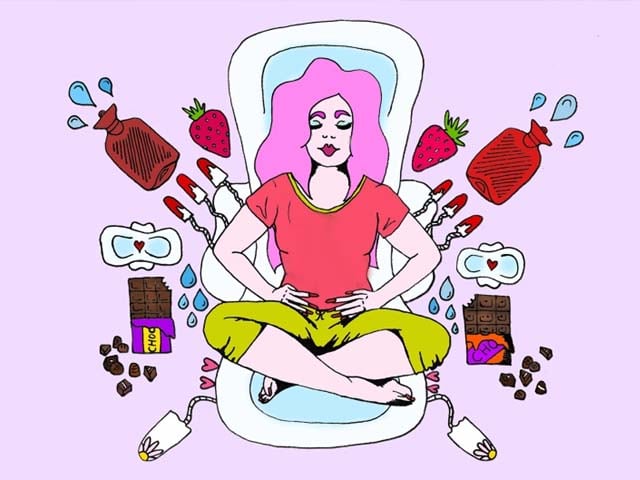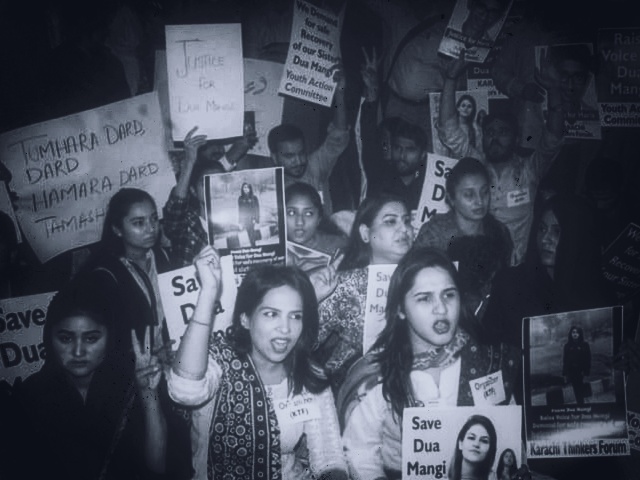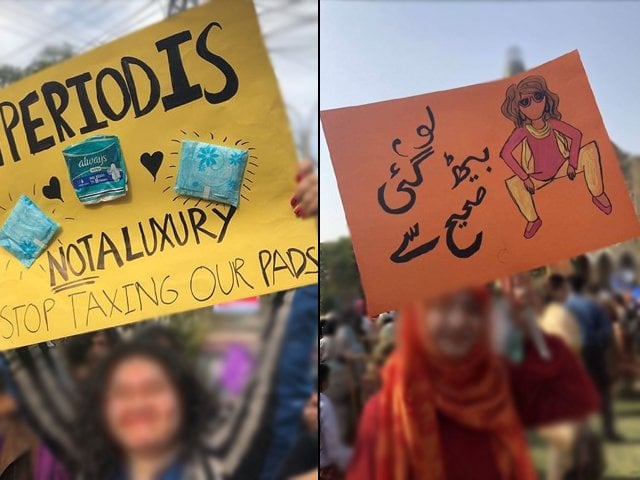
I was shunned to the room because, God forbid, one of the male members of my family were to know that I was on my period. ILLUSTRATION: LIBERTY ANTONIA SADLER FOR METRO
Why do I have to pretend to fast when my “monthly friend” is visiting?
Women wake up for sehri and pretend to fast since the word menstruation can't be spoken beyond an octave of a...
I sit in the room at the end of the hallway. The door is closed. My head is bent. I am waiting to be called.
I was six-years-old. I stood on the balcony with my mother, father and cousin as we tried to spot the chaand that would symbolise the start of Ramazan. I was excited. I was thrilled; there was nothing I wanted more than to fast for the entire month. I started singing,
“Ramazan ke rozay aye, hum roza rakhna chahain!”
(The month of fasting is here, and we wish to fast!)
My cousin shared the same enthusiasm; he got up and began singing along with me. But soon we were reminded that we were too young, too thin and too weak to fast. My parents finished the song,
“Aglay saal, aglay saal, aglay saal!”
(Next year, next year, next year!)
We smiled with that hopeful glow of innocence that all children seem to exude and sang along with them.
“Aglay saal” came soon enough, and along with that came a long awaited friend.
_______________________________________________________________
The room is small. Several prayer mats lay folded on the sofa next to me. I keep a one-arm distance between them and myself. I get up and walk to the door. I peek outside to see if the jamaat (congregation) is over. But it isn’t. I catch her eye as she bends into sajdah (prostration). I close the door.
Earlier, I was drinking a glass of water when she walked into the kitchen. She asked me,
“Aren’t you fasting?”
I boldly shook my head, unafraid and continued to sip on my glass of water. The look she gave me, however, told me that I should be. Her eyes narrowed, and her wrinkled nose turned upwards. She tightened the scarf on her head, scoffed and walked out of the room.
I saw her whisper her disappointment to my grandmother, my mother and my khala.
“Why isn’t she pretending to fast?” she questioned my grandmother.
I chuckled – I couldn’t help but laugh because I am not embarrassed by my body; I am not embarrassed by my womanhood. And I shouldn’t have to be.
I didn’t hear what my grandmother had to say. I looked at this woman I barely knew, amidst an iftar at my grandmother’s house as she glared at me. I sighed. This was Karachi – iftaris with distant relatives and far-off family friends, aunties making unwarranted comments on the lives of every young woman they could find. I went up to her and asked,
“Why?”
She looked at me, taken aback. No one ever asks why. We don’t ask why when we’re told that the women’s section is in the basement of the grocery store, we don’t ask why we’re told to speak softly. We never do. Maybe that was part of the problem. And as the word left my mouth, it formed into something I never intended it to be – defiance.
I was curious. I always had been. But I never meant to be rude. I could tell by her face that no one had ever questioned her before and I wondered if our society was an accumulation of matriarchy as opposed to the patriarchy we seem to blame everything on.
She looked at me and sighed,
“Some things aren’t meant to be questioned.”
There always seemed to be a barrier between me and the rest of the world. She wryly smiled at me.
“Beta, girls are precious. So it is your duty to protect yourself.”
“Protect myself from what exactly?”
I pushed, knowing already that she would not answer. She turned around and ever-so-kindly led me to a room down the hallway so that she could join the jamaat.
“Girls aren't supposed to let the world know when their friend is visiting,” she cooed as she ruffled my hair.
She smiled at me, but it wasn’t really a smile and I realised that she herself could not say the word period. What was she so afraid of? Maybe it wasn’t the over-looming patriarchy that enforced these norms upon us, but the women that believed it was their duty for us, as women, to be nothing more than emotional entities. The physical being, the body was never discussed here and that irritated me to another end.
Her eyes moved from mine and made their way slowly down my body. She looked at my kurta, which I had thought was decent enough for an iftari. Her eyes then moved on to my tights, which were black and fitted. She did not approve. I didn’t understand. Even my choices were not my own.
I was supposed to hide my body, pretend that it didn’t exist. I hated it. I hated feeling guilty for taking up space, but not anymore. I was sick of everyone around me owning me; my body, my choices, my thoughts.
I was shunned to the room because, God forbid, one of the male members of my family was to know that I was on my period. What would they think! The horror.
So here I am – alone, and ashamed; left to rethink my decision of openly drinking water in a month where it’s only acceptable to do so after 7:25 pm. Yet, I don’t want to be alone and I don’t want to be ashamed. It’s almost as if everything I say, or do, or wear is scrutinised by all those around me and slowly I’m growing more into a shell than as a person.
I live in a city where womanhood is discussed solely behind closed doors – with hushed voices, hidden away from the men in a tight box; one we have been told to fit into. I live in a city where women on their cycle wake up for sehri and pretend to fast because the word menstruation cannot be spoken beyond an octave of a whisper. Yet, when I’m told to sit in a room and hide myself, I do so because generations of women before me did the very same thing, and it’s all I’ve ever known.
The notion that we have adverts about new lines of pads, that show all these happy girls frolicking around the screen is apparently groundbreaking in our society. Groundbreaking…We are talking about something that is no innately natural to women, why should discussing or educating people on that be deemed as revolutionary? I know we live in a conservative society, lest I ever forget, but that does not mean that our periods should be slipped under the cracks so that the people around us don’t feel uncomfortable.
I sit in the room thinking back to when I was six-years-old. How innocently I sang the song, yearning to fast. How my cousin and I used to be equals. Yet equality is not a word that always exists when it comes to women. I hear a knock on the door. My mother walks in and sits next to me. She takes out a KitKat from her bag and hands it to me. I smile up at her as she leans back against the sofa and sings,
“Ramazan ke rozay aye…”




COMMENTS (8)
Comments are moderated and generally will be posted if they are on-topic and not abusive.
For more information, please see our Comments FAQ